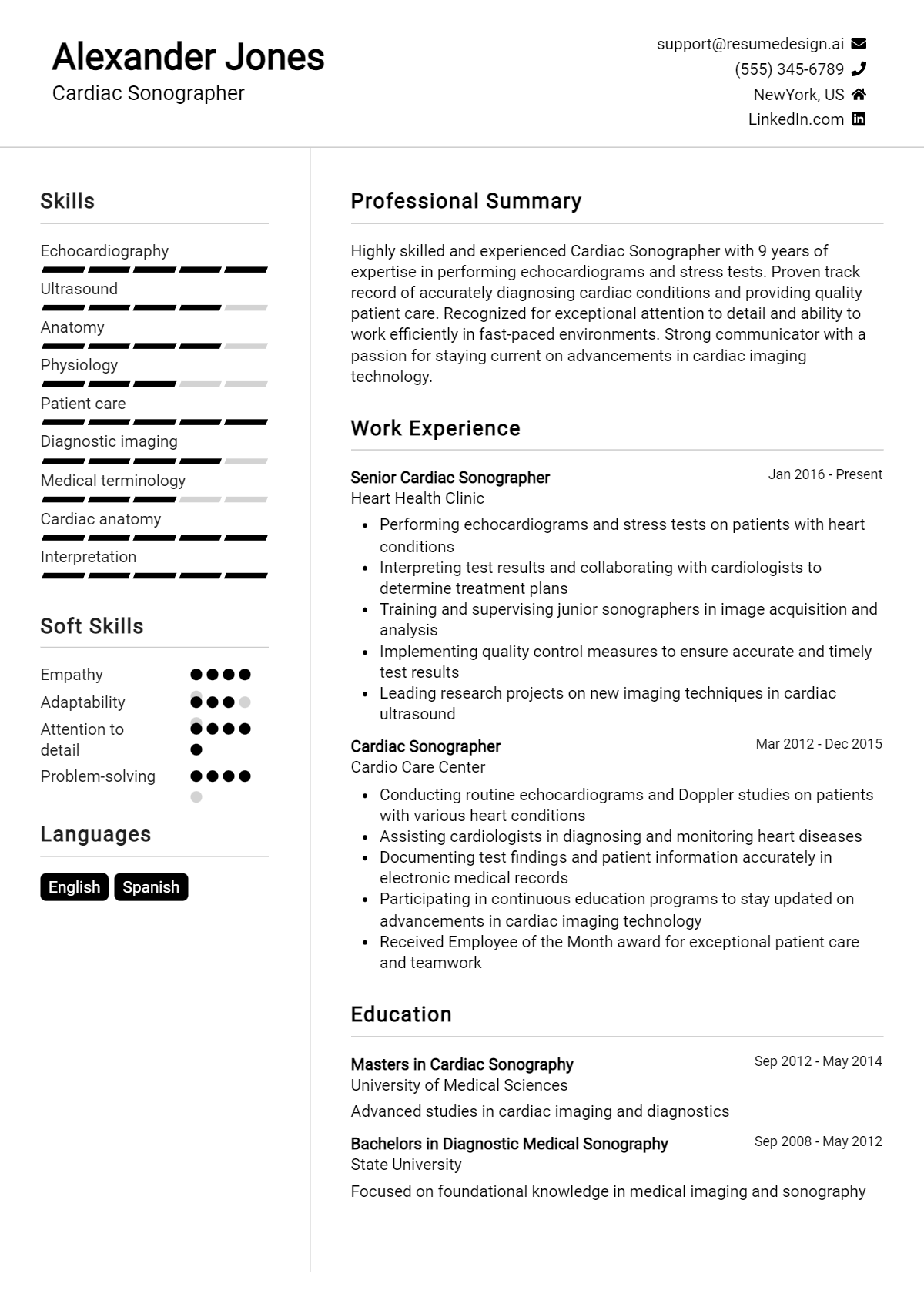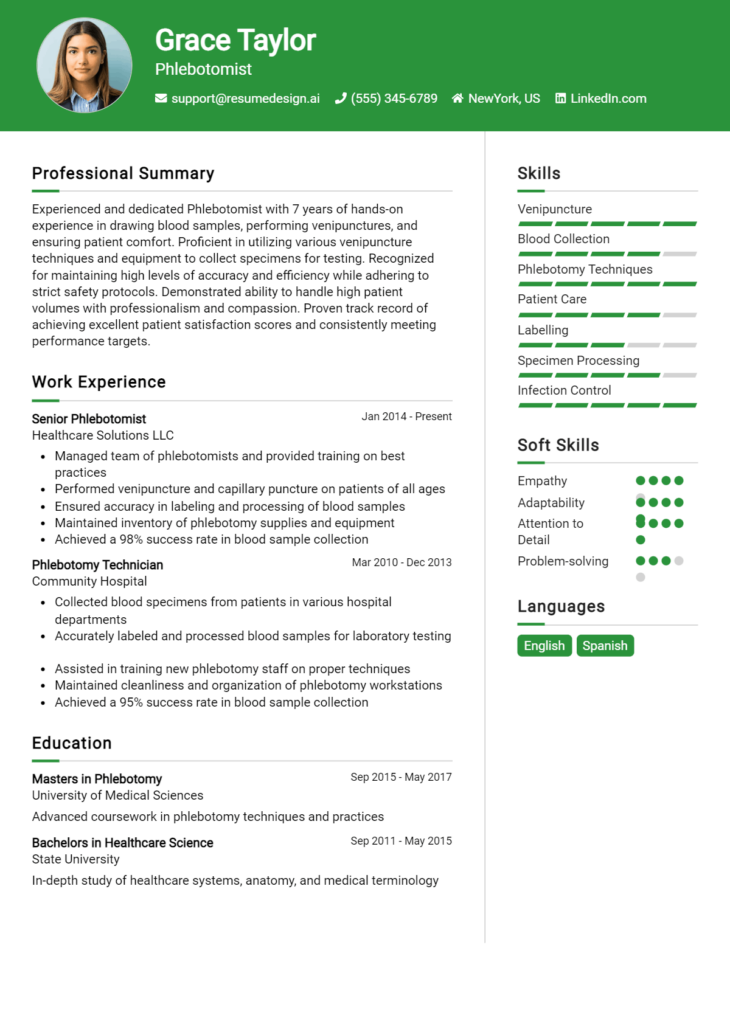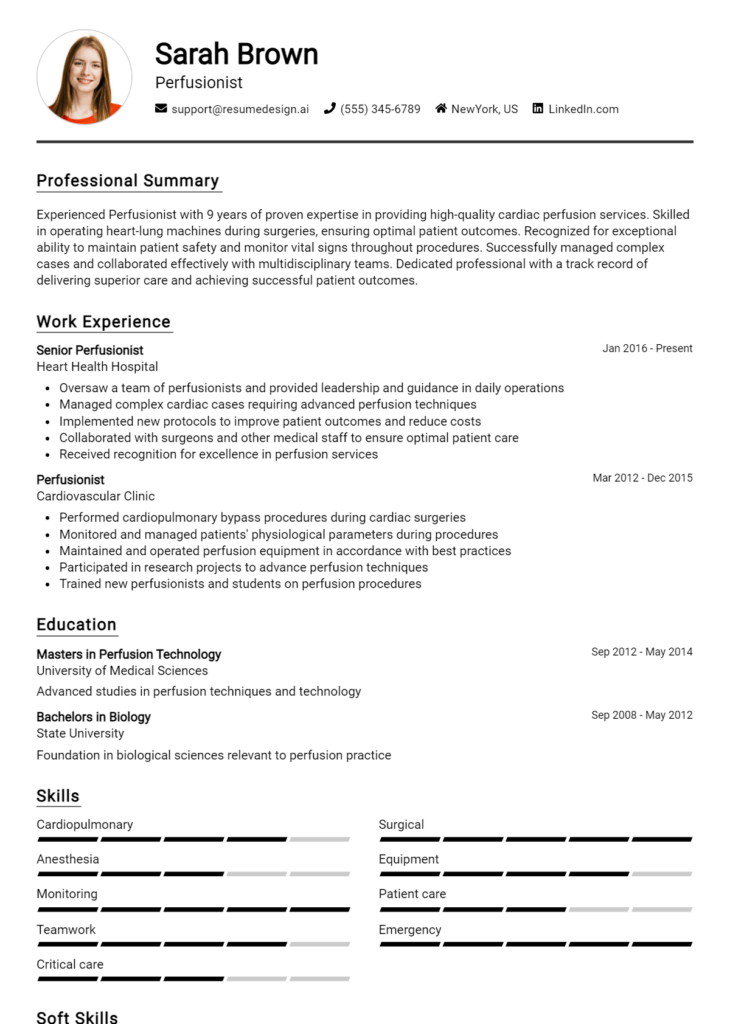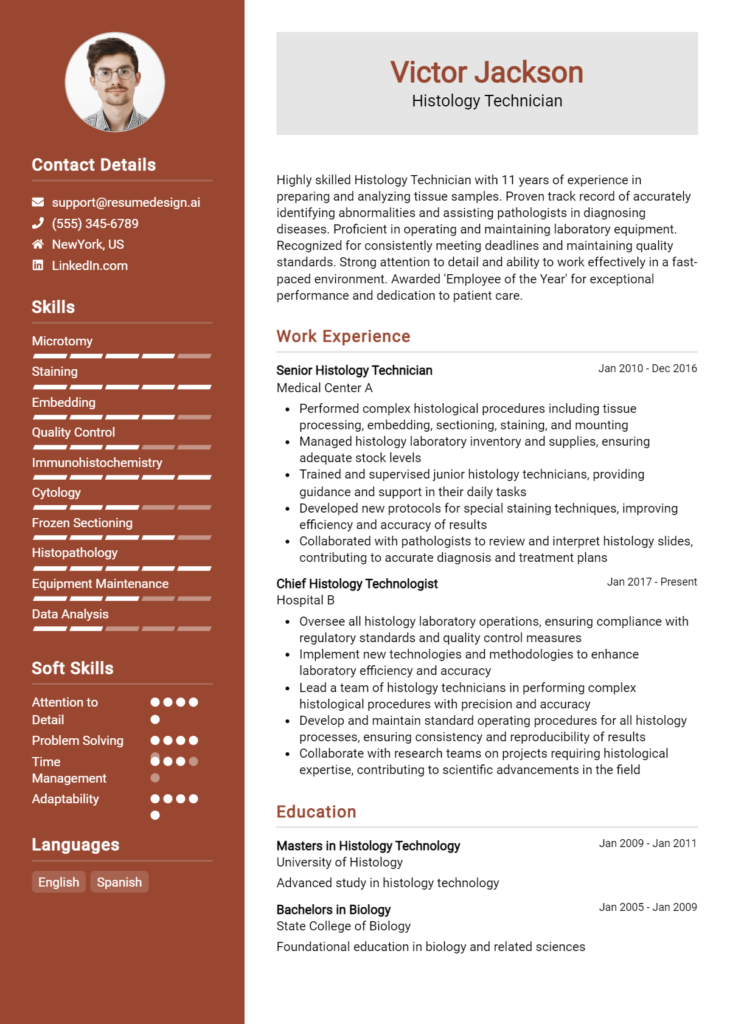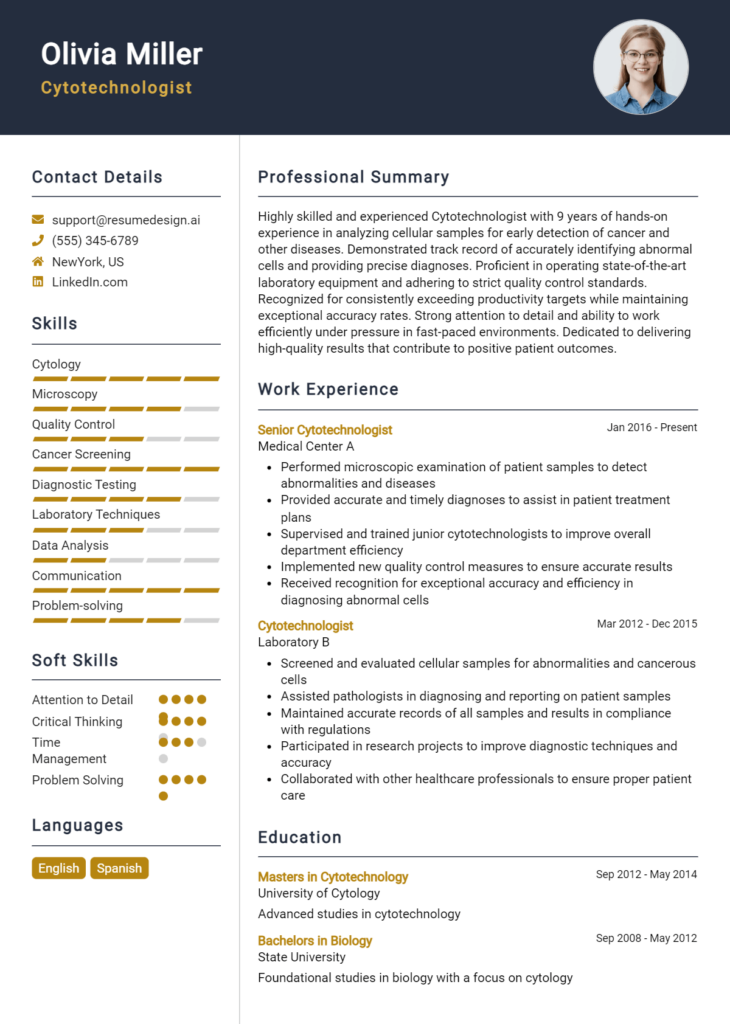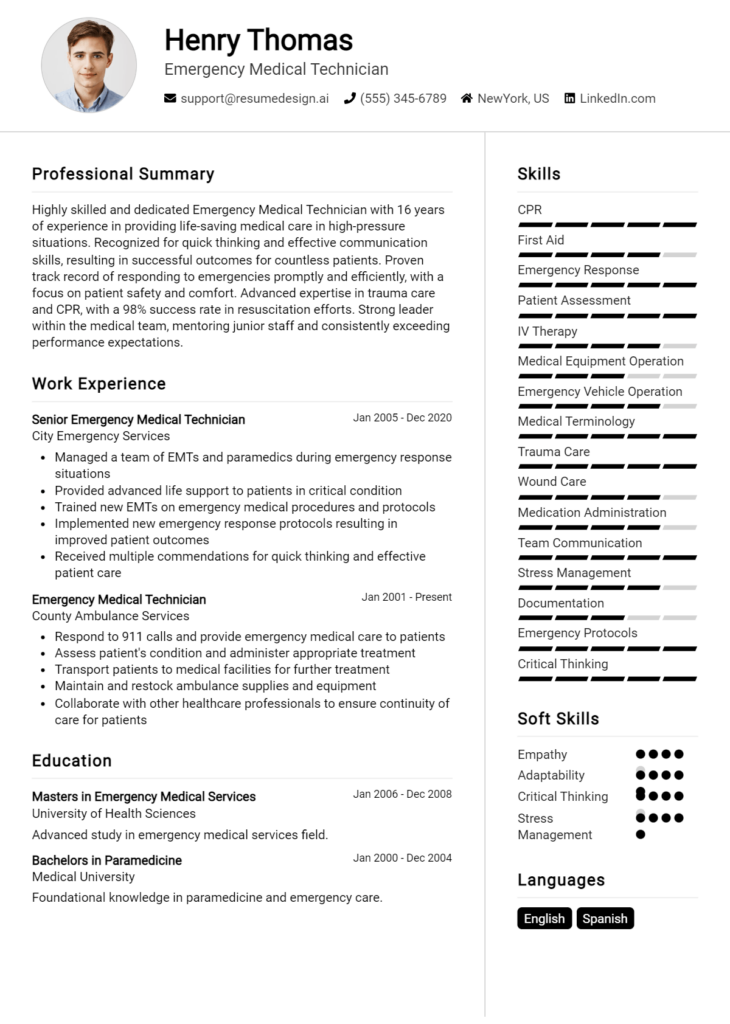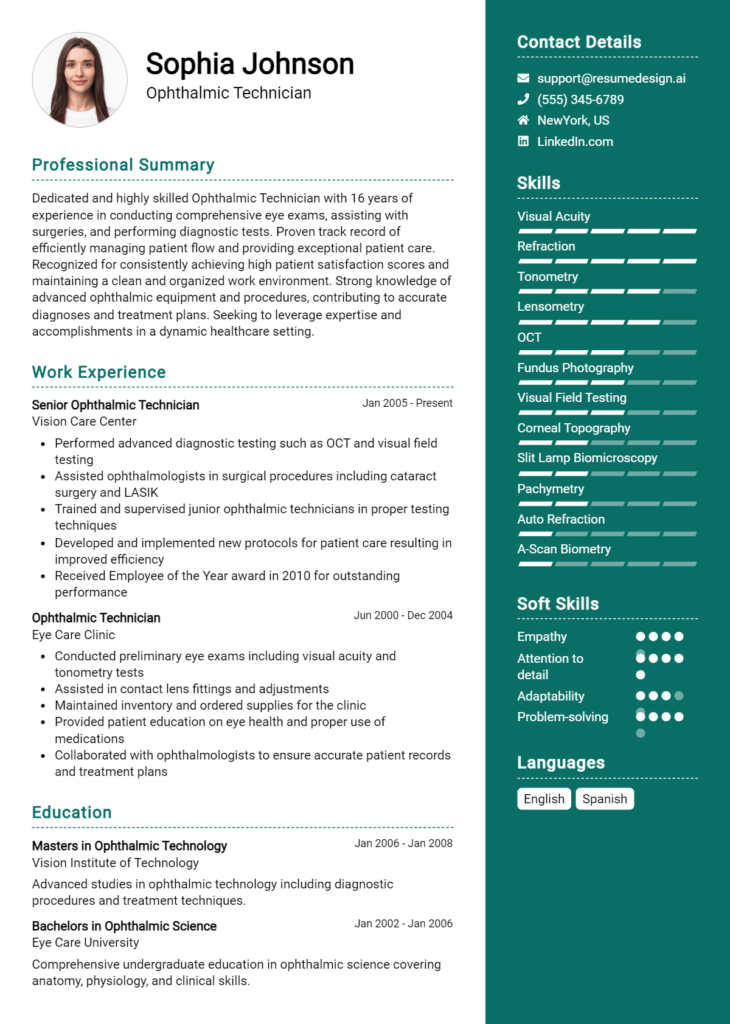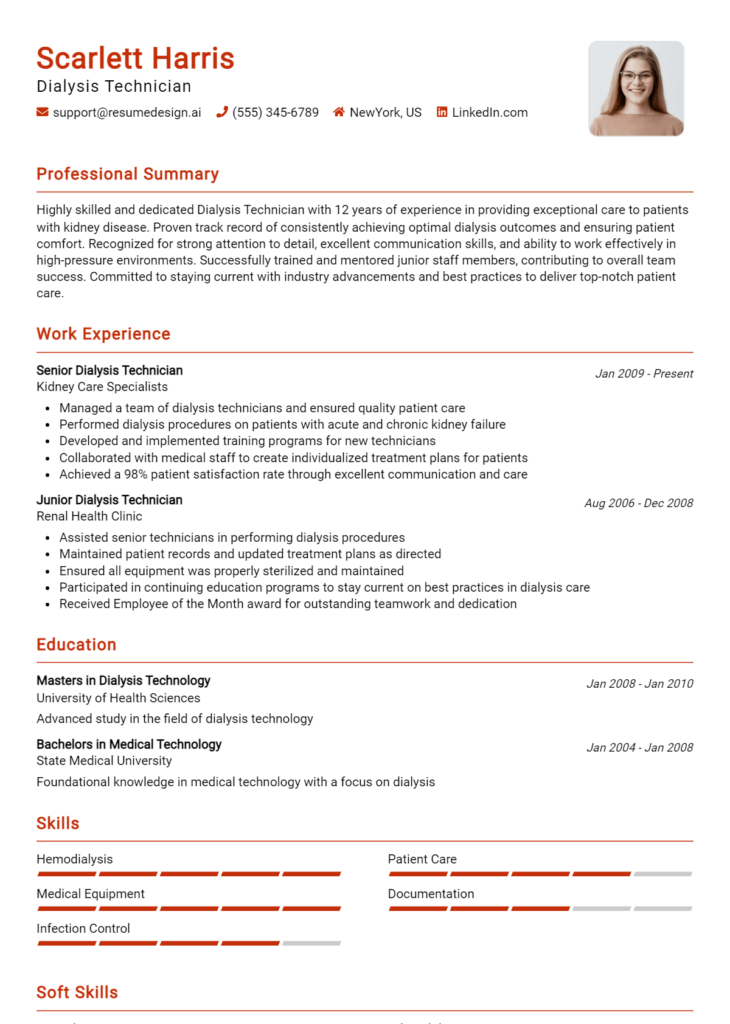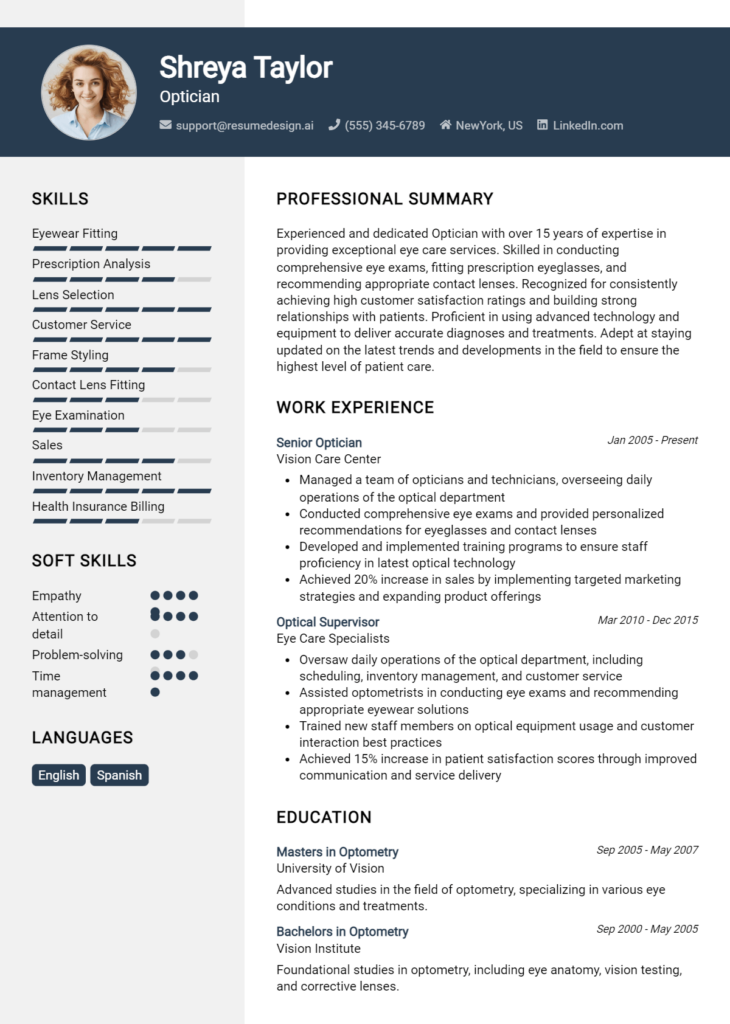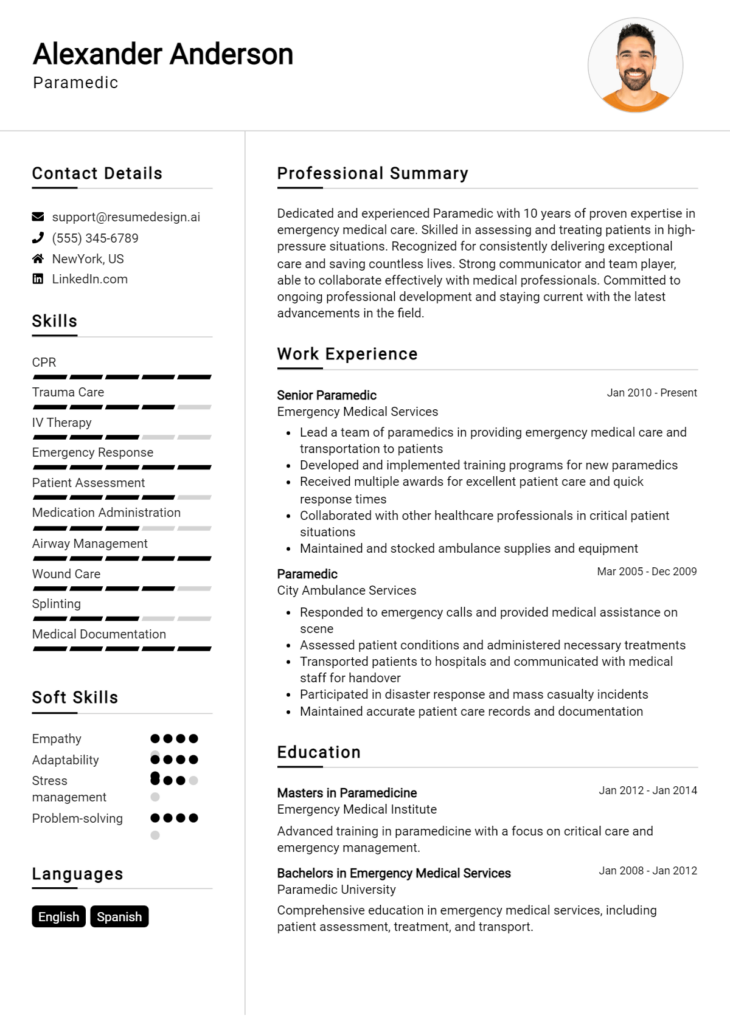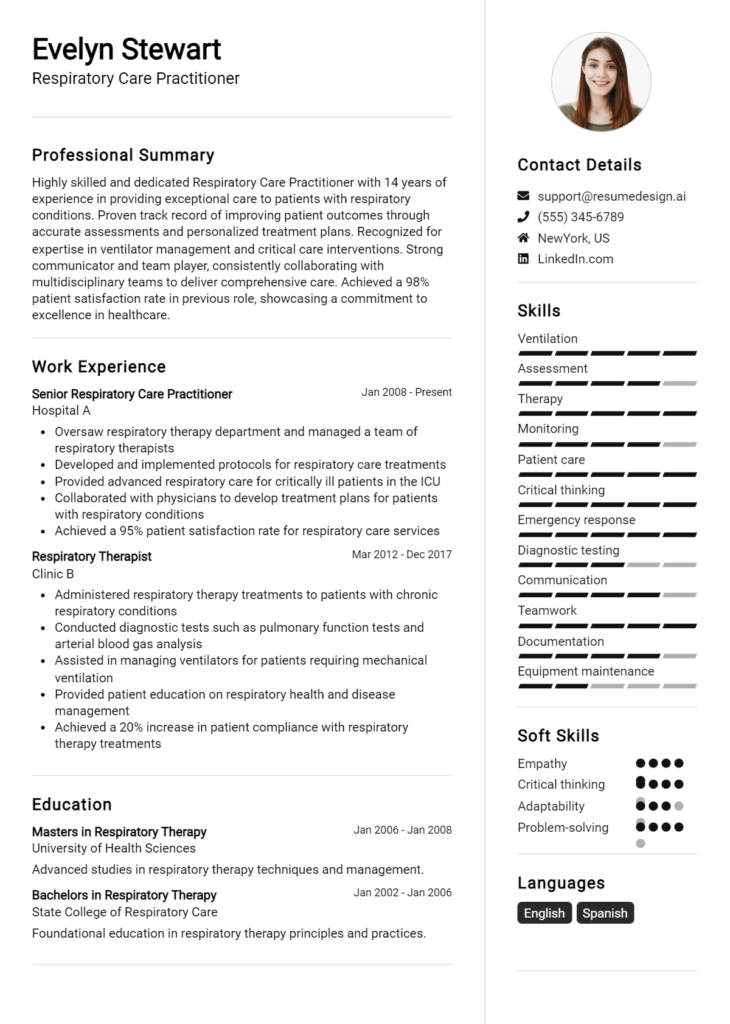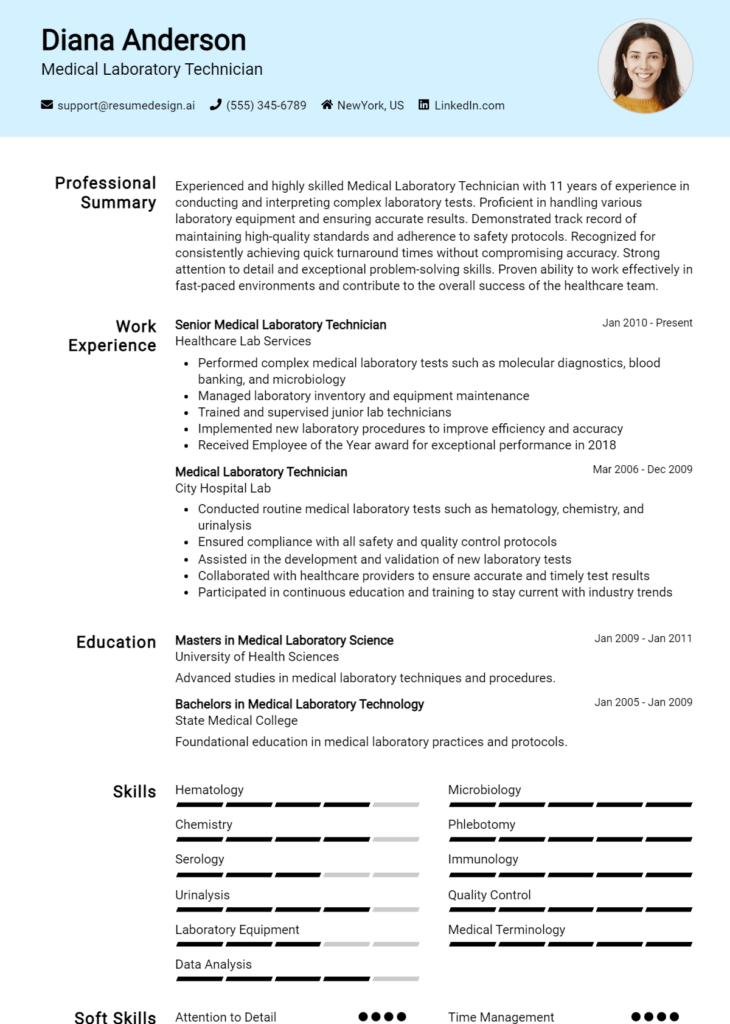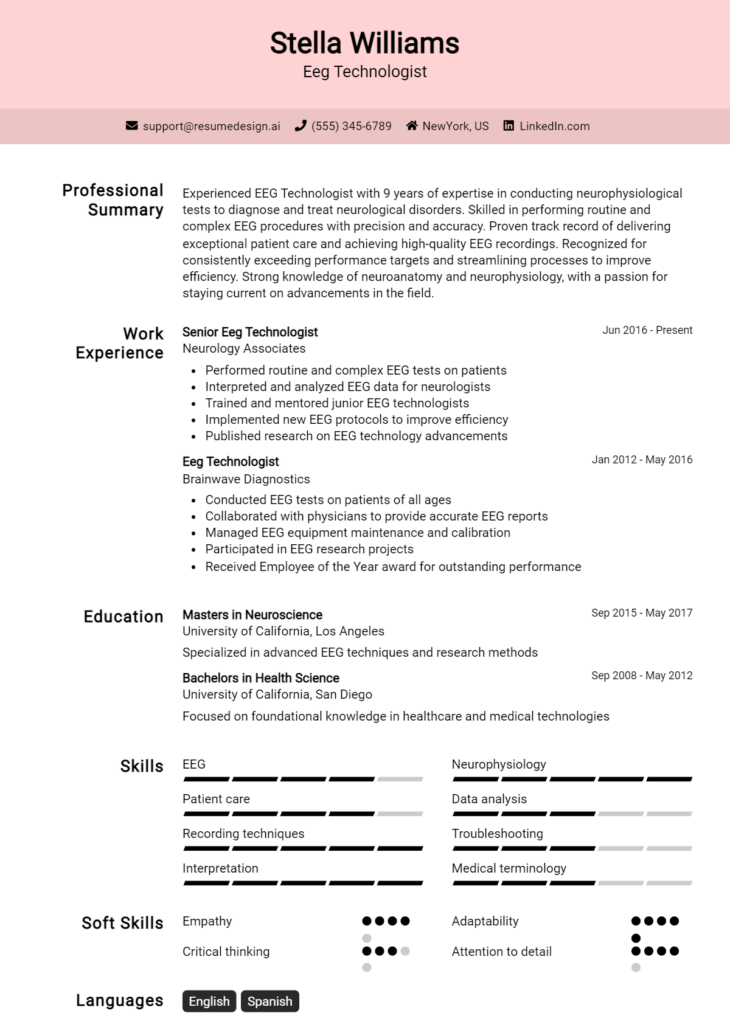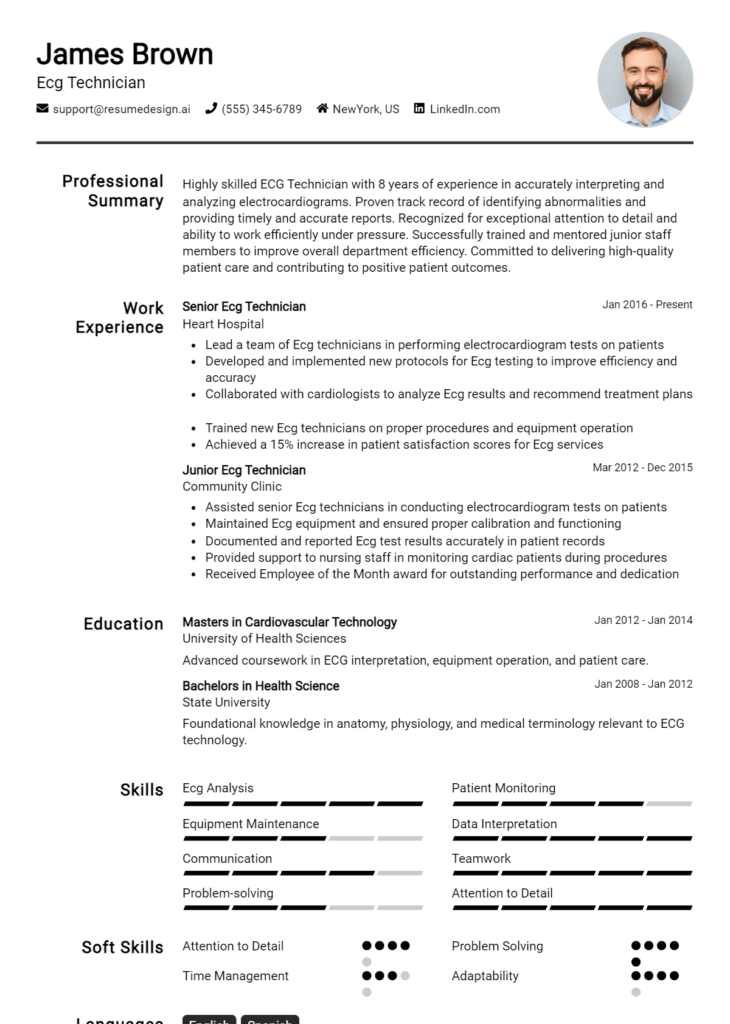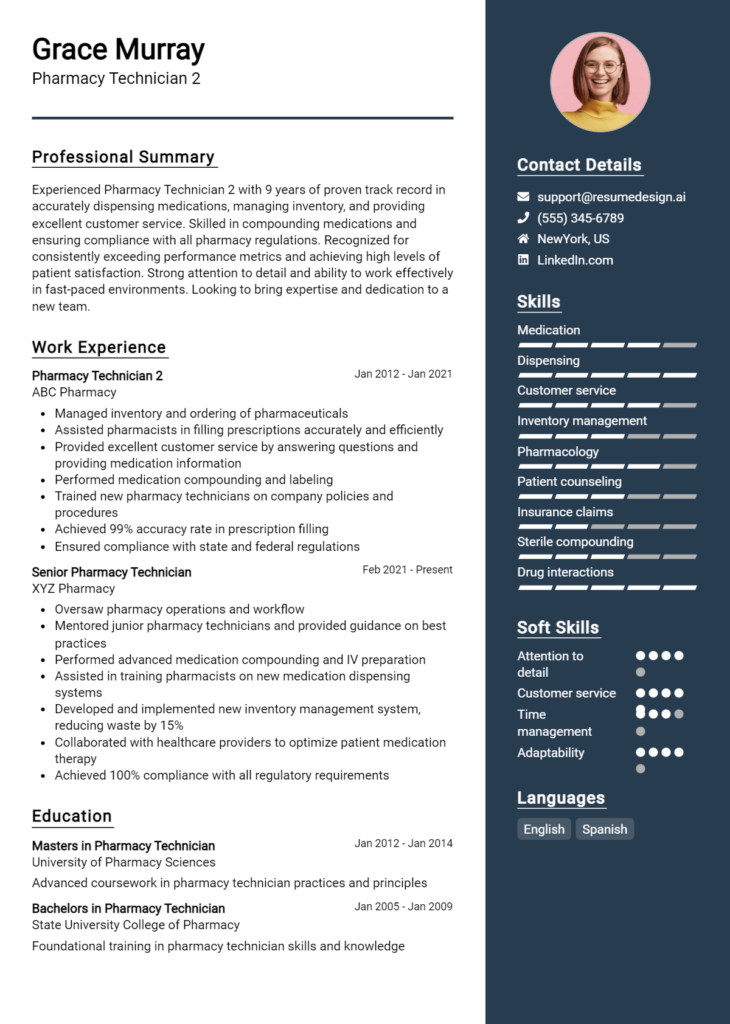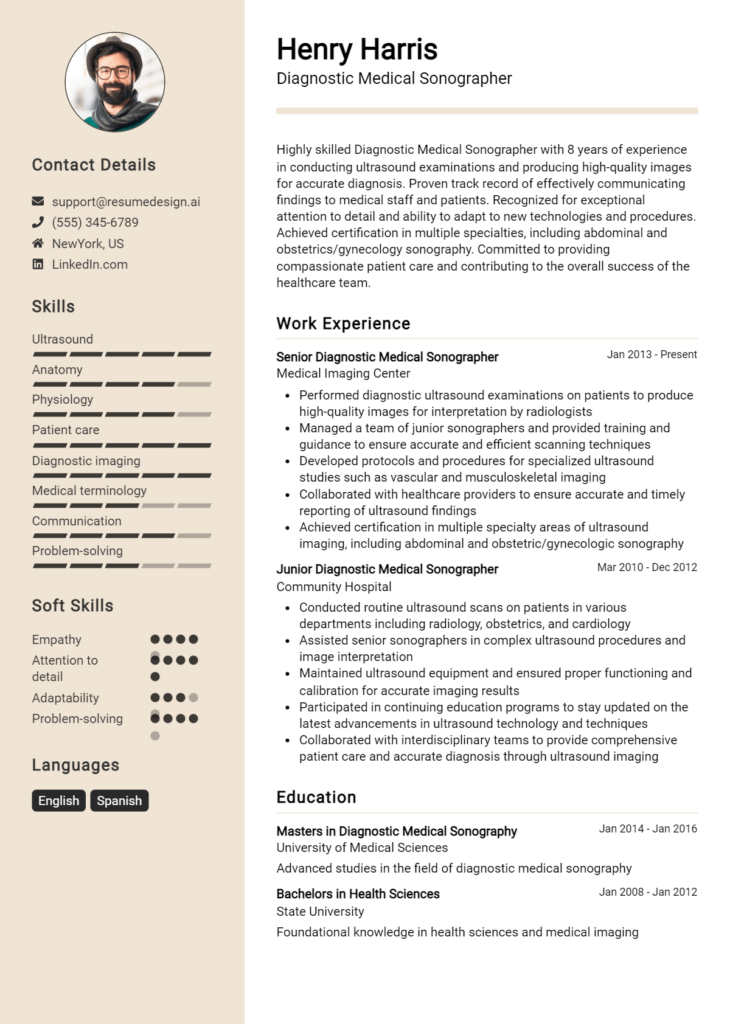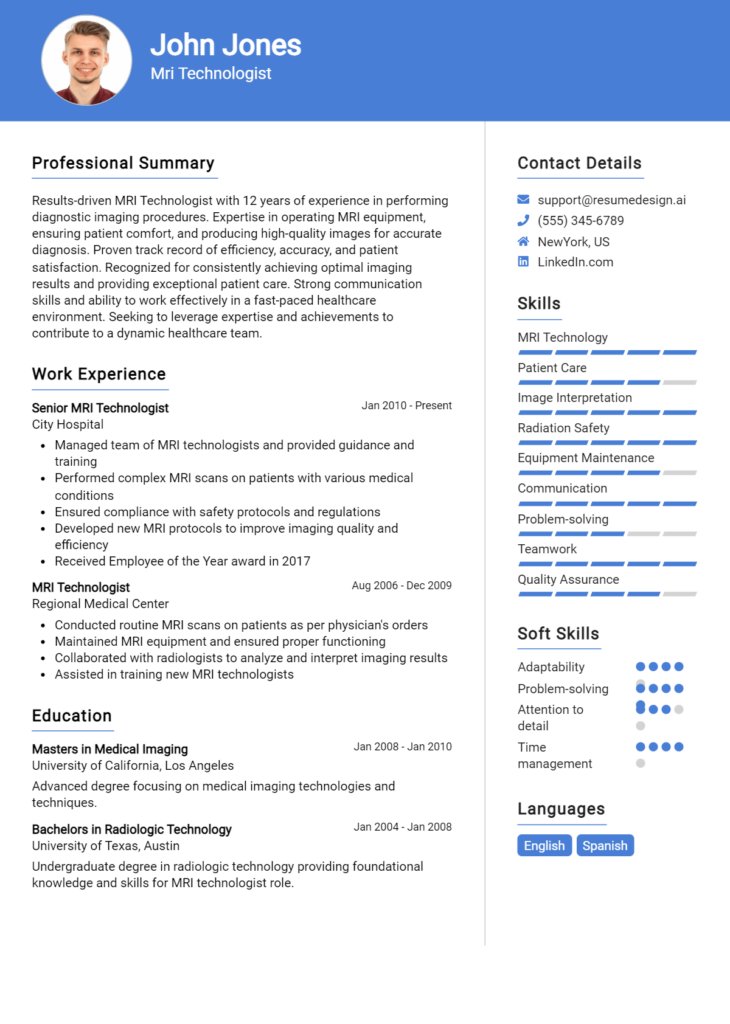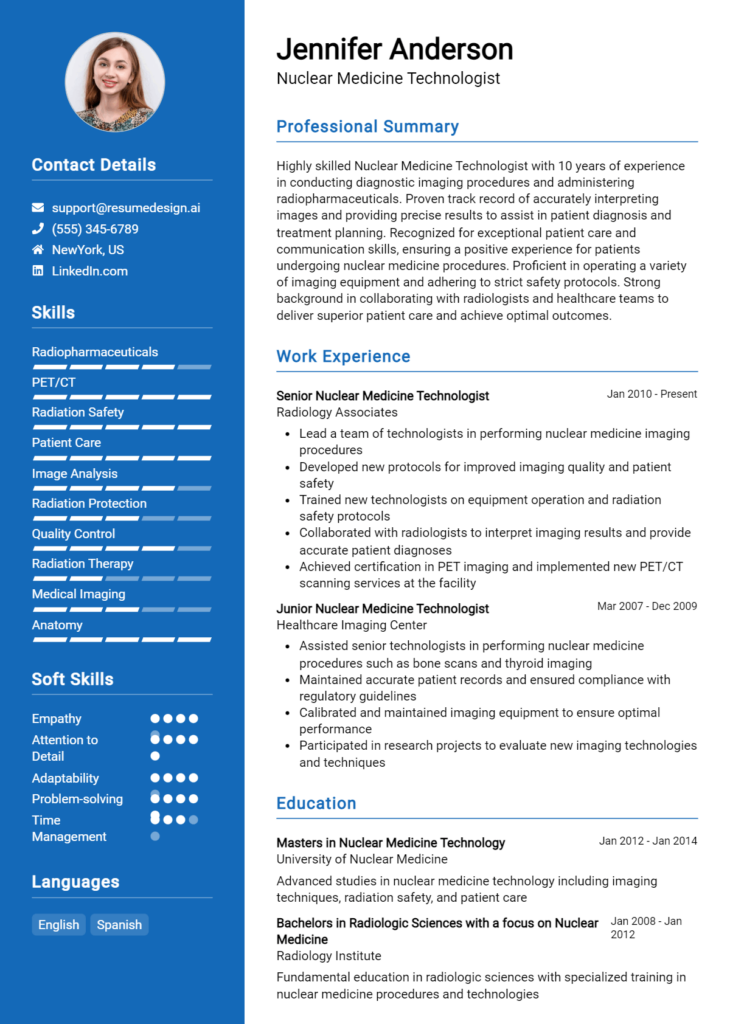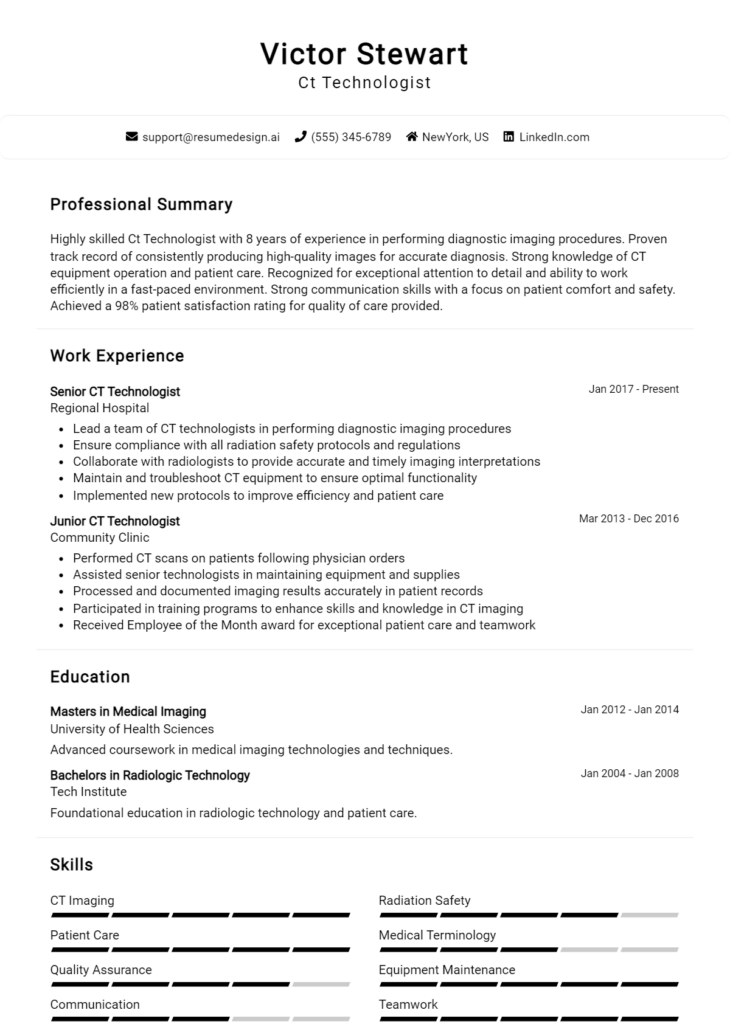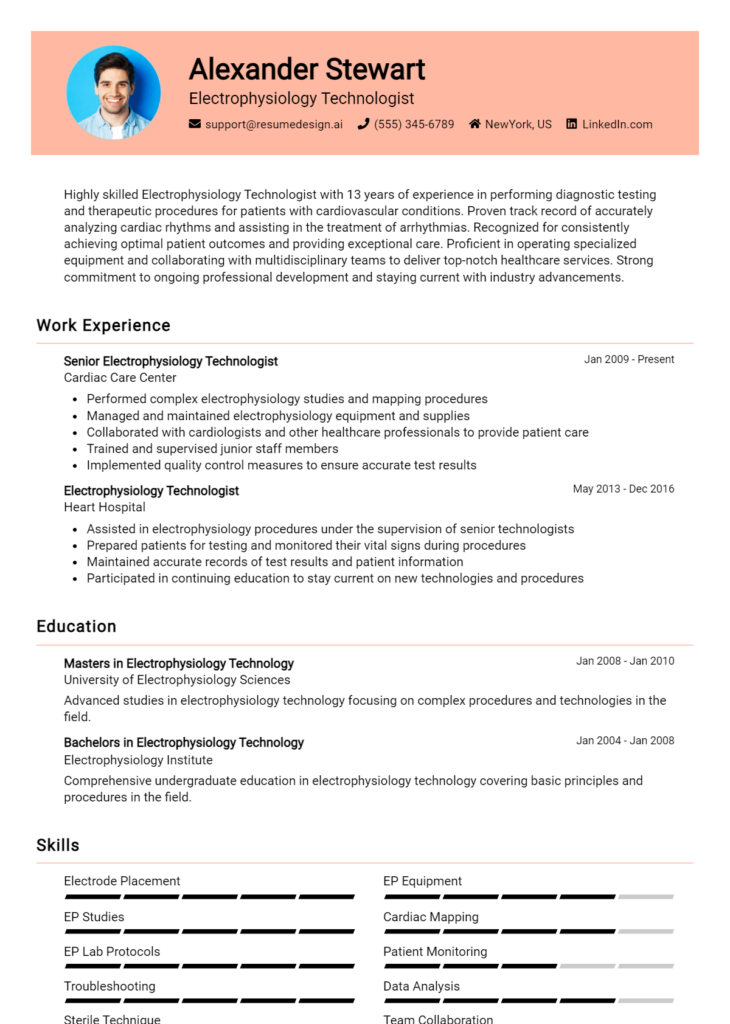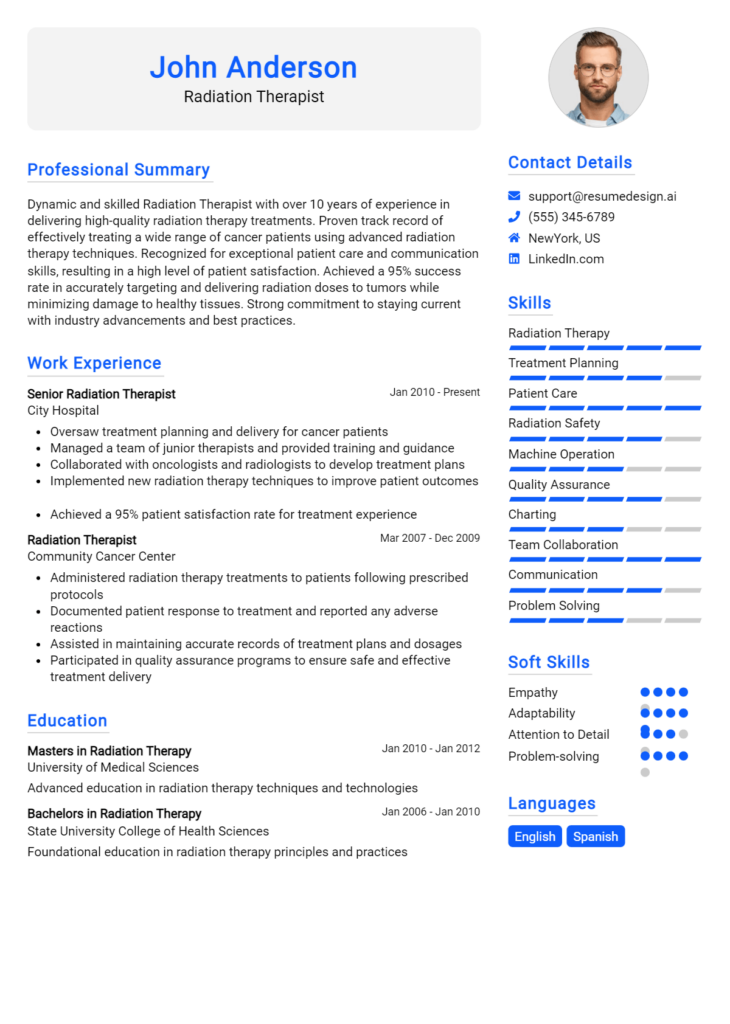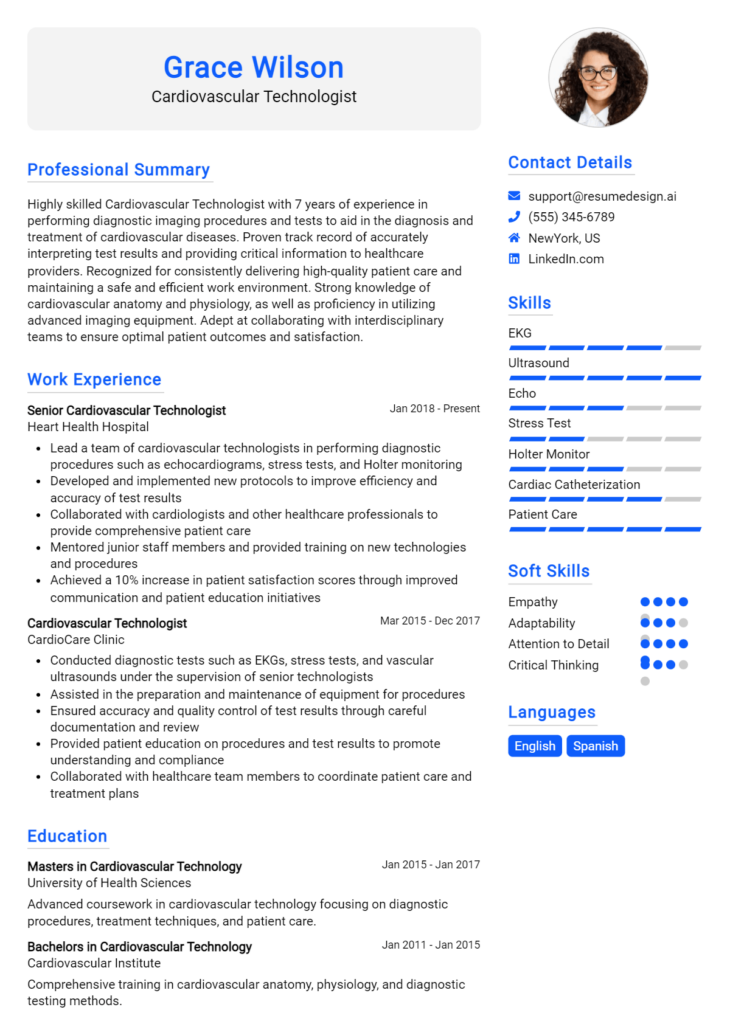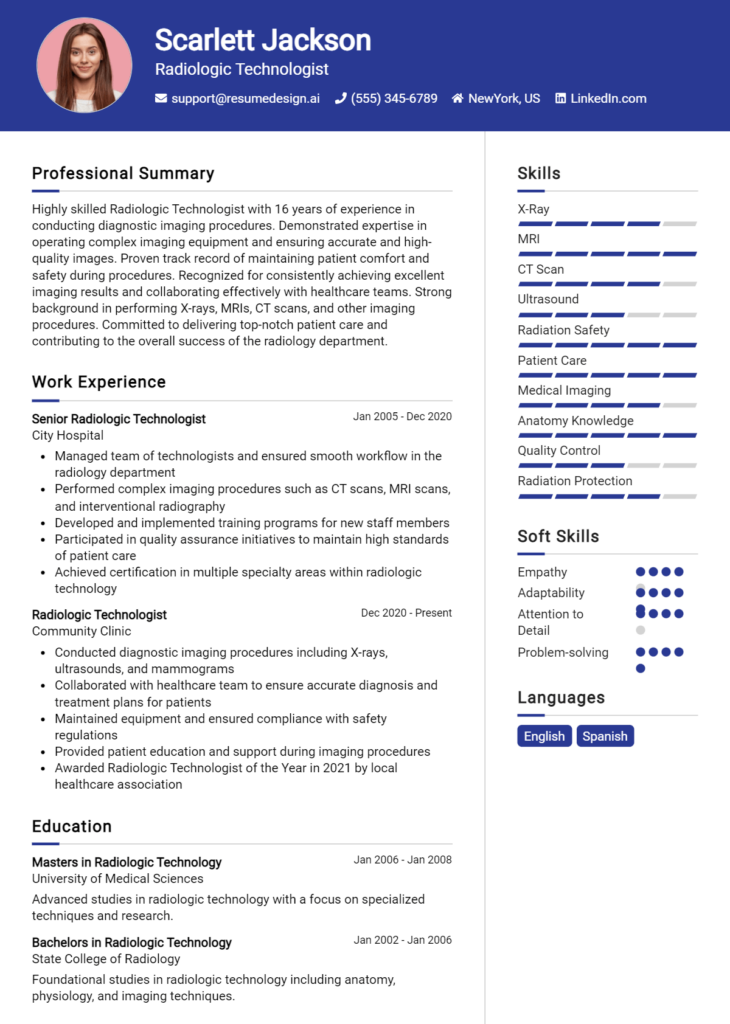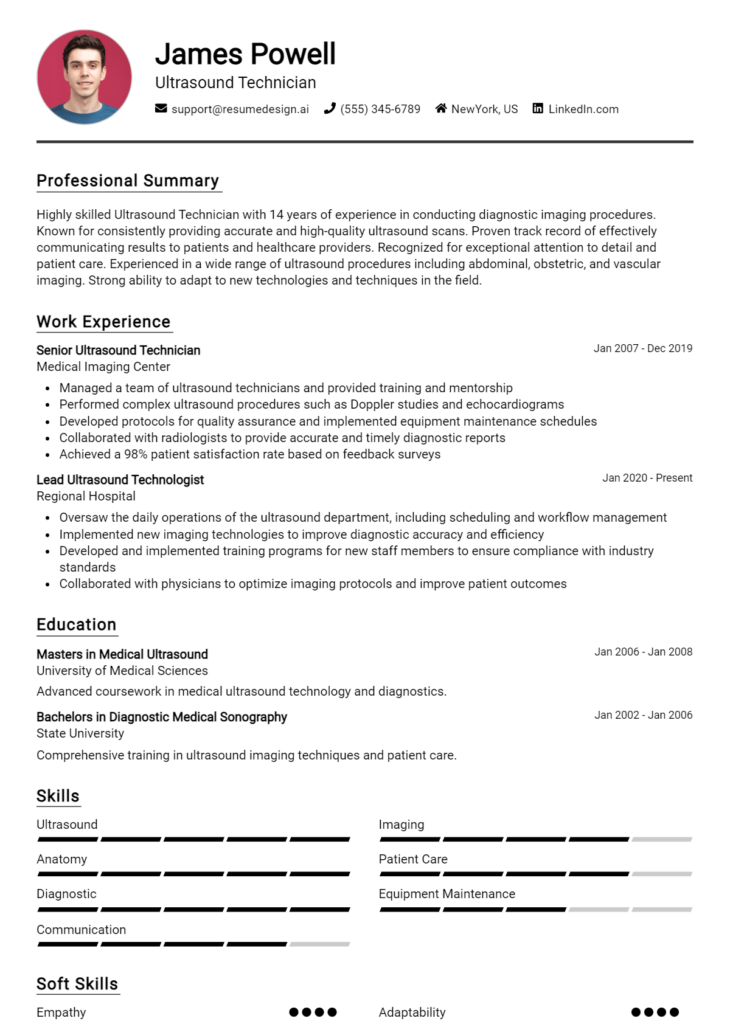Cardiac Sonographer Core Responsibilities
A Cardiac Sonographer plays a crucial role in the healthcare team, utilizing advanced imaging technology to assess heart health. Key responsibilities include performing echocardiograms, collaborating with cardiologists to interpret results, and ensuring patient comfort during procedures. Essential skills encompass technical proficiency with ultrasound equipment, operational efficiency in managing patient data, and problem-solving abilities to address imaging challenges. These competencies are vital in achieving organizational objectives, and a well-structured resume can effectively highlight these qualifications, enhancing career prospects.
Common Responsibilities Listed on Cardiac Sonographer Resume
- Perform echocardiograms and other cardiac imaging procedures.
- Analyze and interpret ultrasound images for diagnostic purposes.
- Collaborate with cardiologists to develop patient care plans.
- Ensure patient safety and comfort during imaging procedures.
- Maintain and calibrate ultrasound equipment for optimal performance.
- Document and maintain accurate patient records and imaging results.
- Educate patients about the echocardiogram process and potential outcomes.
- Assist in clinical research and data collection related to cardiac health.
- Participate in departmental meetings and contribute to continuous improvement initiatives.
- Stay current with advancements in cardiac imaging technology.
- Provide support in training new staff and students in echocardiography.
- Ensure compliance with healthcare regulations and standards.
High-Level Resume Tips for Cardiac Sonographer Professionals
In the highly specialized field of cardiac sonography, a well-crafted resume serves as more than just a document; it is often the first impression a candidate makes on a potential employer. As a Cardiac Sonographer, your resume needs to effectively reflect your unique skills, relevant experience, and notable achievements in echocardiography. With employers sifting through numerous applications, it’s essential that your resume stands out by clearly demonstrating your qualifications and readiness to contribute to patient care. This guide will provide practical and actionable resume tips specifically tailored for Cardiac Sonographer professionals, helping you showcase your expertise and secure that coveted interview.
Top Resume Tips for Cardiac Sonographer Professionals
- Tailor your resume for each job application by aligning your skills and experiences with the specific requirements outlined in the job description.
- Highlight relevant certifications such as Registered Diagnostic Cardiac Sonographer (RDCS) or Registered Cardiac Sonographer (RCS) to showcase your qualifications.
- Showcase your experience in various echocardiographic techniques, including transthoracic, transesophageal, and stress echocardiography.
- Quantify your achievements by including metrics such as the number of echocardiograms performed, patient satisfaction scores, or improvements in diagnostic accuracy.
- Include a summary statement at the top of your resume that captures your professional identity and key qualifications as a Cardiac Sonographer.
- Emphasize your ability to work collaboratively in multidisciplinary teams, highlighting any experience in patient interaction and education.
- Incorporate relevant technical skills such as proficiency with ultrasound equipment, image analysis software, and reporting tools.
- Keep your resume concise and focused, ideally limited to one page, ensuring that the most pertinent information stands out.
- Utilize action verbs to describe your responsibilities and achievements, making your contributions more dynamic and impactful.
- Proofread your resume thoroughly to eliminate any typos or grammatical errors, as professionalism in presentation is key in the healthcare field.
By implementing these tips, you can significantly increase your chances of landing a job in the Cardiac Sonographer field. A well-structured resume that effectively highlights your qualifications and achievements will not only draw the attention of hiring managers but also set you apart from other candidates, paving the way for successful career opportunities in this vital healthcare profession.
Why Resume Headlines & Titles are Important for Cardiac Sonographer
In the competitive field of healthcare, particularly in specialized roles such as a Cardiac Sonographer, having a well-crafted resume headline or title is crucial. A strong headline serves as a powerful first impression that can immediately grab the attention of hiring managers. It succinctly summarizes a candidate's key qualifications and sets the tone for the rest of the resume, allowing it to stand out amongst many applicants. A concise, relevant, and targeted headline not only highlights the specific skills and experiences related to the cardiac sonography role but also reflects the candidate's professionalism and understanding of the job requirements.
Best Practices for Crafting Resume Headlines for Cardiac Sonographer
- Keep it concise: Aim for a headline that is brief yet impactful.
- Be role-specific: Use keywords related to the cardiac sonography field to capture relevance.
- Highlight key strengths: Focus on your most significant skills, certifications, or achievements.
- Avoid jargon: Use clear language that is easily understood by hiring managers.
- Showcase experience level: Indicate your years of experience or any specialized training.
- Tailor for the position: Customize your headline for each job application to align with the job description.
- Use action-oriented language: Start with dynamic verbs that convey your capabilities.
- Maintain professionalism: Ensure your headline reflects a professional tone appropriate for the healthcare industry.
Example Resume Headlines for Cardiac Sonographer
Strong Resume Headlines
"Dedicated Cardiac Sonographer with 5+ Years of Experience in Advanced Echocardiography Techniques"
"Certified Cardiac Sonographer Specializing in Pediatric and Adult Cardiac Imaging"
"Detail-Oriented Cardiac Sonographer with Proven Expertise in Patient Care and Diagnostics"
"Experienced Cardiac Sonographer Committed to High-Quality Imaging and Patient Safety"
Weak Resume Headlines
"Looking for a Job as a Sonographer"
"Experienced Healthcare Professional"
The strong headlines listed above are effective because they clearly communicate specific qualifications, experience, and areas of expertise relevant to the role of a Cardiac Sonographer. They include quantifiable metrics, such as years of experience or specializations, which help to quickly convey the candidate's value. In contrast, the weak headlines fail to impress because they are vague and lack specific information. They do not provide any insight into the candidate's unique skills or qualifications, making it difficult for hiring managers to see what sets these candidates apart from others.
Writing an Exceptional Cardiac Sonographer Resume Summary
A well-crafted resume summary is crucial for a Cardiac Sonographer, as it serves as the first impression a hiring manager receives of the candidate. This concise section quickly captures attention by highlighting key skills, relevant experience, and noteworthy accomplishments tailored to the specific job role. An impactful summary not only showcases the candidate's qualifications but also demonstrates their understanding of the position, making it essential for standing out in a competitive job market.
Best Practices for Writing a Cardiac Sonographer Resume Summary
- Quantify Achievements: Use specific numbers to illustrate your accomplishments, such as the number of procedures performed or patient satisfaction scores.
- Focus on Relevant Skills: Highlight essential skills specific to cardiac sonography, such as proficiency in echocardiography and knowledge of cardiac anatomy.
- Tailor the Summary: Customize your summary for each job application, aligning your skills and experiences with the job description provided.
- Keep it Concise: Aim for 2-4 sentences that effectively summarize your qualifications without unnecessary fluff.
- Use Action Verbs: Start sentences with strong action verbs to convey confidence and competence.
- Highlight Certifications: Mention relevant certifications or licenses that enhance your credibility as a cardiac sonographer.
- Showcase Soft Skills: Include important interpersonal skills, such as communication and empathy, that are vital in a patient-focused role.
- Be Honest: Ensure that all information is accurate and truthful to build trust with potential employers.
Example Cardiac Sonographer Resume Summaries
Strong Resume Summaries
Dedicated Cardiac Sonographer with over 5 years of experience performing echocardiograms and assisting in diagnostic procedures, achieving a 95% patient satisfaction rate through compassionate care and thorough evaluations.
Detail-oriented Cardiac Sonographer skilled in 2D and 3D echocardiography, having performed over 1,500 cardiac ultrasounds with a 98% accuracy in diagnostic interpretations, contributing to timely and effective patient treatment plans.
Certified Cardiac Sonographer with expertise in advanced imaging techniques and a proven track record of collaborating with cardiologists, resulting in a 20% increase in diagnostic efficiency over the past year.
Weak Resume Summaries
Experienced sonographer looking for a new opportunity in cardiac imaging.
Cardiac Sonographer with some experience in the field, seeking a job to utilize my skills.
The strong resume summaries demonstrate specific, quantifiable achievements and relevant skills that directly relate to the Cardiac Sonographer role, illustrating the candidate's value to potential employers. In contrast, the weak summaries are vague and lack measurable outcomes, making them less impactful and memorable to hiring managers.
Work Experience Section for Cardiac Sonographer Resume
The work experience section is a critical component of a Cardiac Sonographer resume, as it serves to highlight the candidate's technical skills, leadership capabilities, and commitment to delivering high-quality diagnostic services. This section not only reflects the practical application of sonographic techniques and knowledge but also demonstrates the ability to manage teams effectively and collaborate with healthcare professionals. By quantifying achievements and aligning experience with industry standards, candidates can provide concrete evidence of their contributions to patient care and overall clinical outcomes, making their applications more compelling to potential employers.
Best Practices for Cardiac Sonographer Work Experience
- Clearly outline specific technical skills utilized in previous roles, such as echocardiography, Doppler imaging, and stress testing.
- Quantify achievements with metrics, such as the number of procedures performed or improvements in patient outcomes.
- Highlight leadership roles or team management experiences to illustrate collaborative abilities.
- Use industry-specific terminology to align your experience with current standards and practices.
- Include relevant certifications and training that demonstrate ongoing professional development.
- Tailor the work experience descriptions to match the job requirements of the position you are applying for.
- Showcase problem-solving skills by providing examples of challenges faced and how they were overcome.
- Emphasize patient care and communication skills, as these are crucial in a clinical setting.
Example Work Experiences for Cardiac Sonographer
Strong Experiences
- Performed over 1,500 echocardiograms annually, achieving a 98% satisfaction rate among patients based on follow-up surveys.
- Led a team of 5 sonographers in improving workflow efficiency, resulting in a 20% reduction in patient wait times for imaging services.
- Developed and implemented a quality assurance program that decreased error rates in diagnostics by 15% over six months.
- Collaborated with cardiologists to create tailored patient care plans, enhancing treatment outcomes for heart disease patients by 30% as evidenced in follow-up assessments.
Weak Experiences
- Assisted in running echocardiogram equipment and performing tests.
- Worked in a hospital setting, contributing to patient care.
- Gained experience in various sonographic procedures.
- Participated in team meetings to discuss patient cases.
The strong experiences listed above are considered effective because they provide specific, quantifiable outcomes and demonstrate leadership and collaboration in a clinical environment. In contrast, the weak experiences lack detail and measurable results, making it difficult for potential employers to gauge the candidate's impact or technical expertise. Highlighting achievements and using precise language can significantly enhance the appeal of a resume in this field.
Education and Certifications Section for Cardiac Sonographer Resume
The education and certifications section of a Cardiac Sonographer resume is crucial as it serves to showcase the candidate's academic background and professional qualifications. This section not only highlights the degrees obtained but also emphasizes industry-relevant certifications and the commitment to continuous learning. By providing detailed information about relevant coursework, specialized training, and recognized certifications, candidates can significantly enhance their credibility and demonstrate their alignment with the specific demands of the job role. This information reassures potential employers of the candidate's expertise and dedication to the field of cardiac sonography.
Best Practices for Cardiac Sonographer Education and Certifications
- Include only relevant degrees and certifications that pertain to cardiac sonography.
- Detail advanced certifications such as Registered Diagnostic Cardiac Sonographer (RDCS) or Registered Vascular Technologist (RVT).
- Highlight any specialized training or workshops that align with current industry standards.
- Provide specifics on relevant coursework that demonstrates knowledge in anatomy, physiology, and echocardiography.
- List the name of the institution, dates attended, and any honors received to enhance credibility.
- Use a clear and organized format for easy readability, ensuring that each entry is concise.
- Emphasize ongoing education efforts, such as participation in seminars or continuing education courses.
- Be transparent about expiration dates for certifications to reflect current qualifications.
Example Education and Certifications for Cardiac Sonographer
Strong Examples
- Bachelor of Science in Diagnostic Medical Sonography, University of Health Sciences, 2020
- Registered Diagnostic Cardiac Sonographer (RDCS), American Registry for Diagnostic Medical Sonography, 2021
- Advanced Echocardiography Training, Cardiac Sonography Institute, 2022
- Coursework in Cardiac Anatomy and Physiology, University of Health Sciences, 2019
Weak Examples
- Associate Degree in General Studies, Community College, 2018
- Certification in Basic Life Support (BLS), 2015 (not specific to cardiology)
- High School Diploma, Generic High School, 2017
- Certification in Microsoft Office Suite, 2020 (irrelevant to the role)
The examples provided illustrate a clear distinction between strong and weak qualifications. Strong examples reflect relevant educational achievements, specialized training, and industry-recognized certifications essential for a Cardiac Sonographer. In contrast, weak examples include irrelevant qualifications or outdated certifications that do not contribute to the candidate's expertise in cardiac sonography, ultimately detracting from their overall profile.
Top Skills & Keywords for Cardiac Sonographer Resume
As a Cardiac Sonographer, possessing a diverse set of skills is essential for effectively performing echocardiograms and ensuring accurate diagnoses. A well-crafted resume that highlights both hard and soft skills can make a significant difference in showcasing your qualifications to potential employers. The right skills not only demonstrate your technical proficiency but also reflect your ability to communicate, empathize, and work effectively within a healthcare team. Employers look for candidates who can blend their technical expertise with interpersonal skills, making it crucial to present a balanced skill set on your resume. For more insights on how to enhance your resume, check out the resources on skills and work experience.
Top Hard & Soft Skills for Cardiac Sonographer
Soft Skills
- Communication skills
- Attention to detail
- Empathy and compassion
- Critical thinking
- Team collaboration
- Problem-solving abilities
- Time management
- Adaptability
- Patient interaction
- Stress management
Hard Skills
- Proficiency in echocardiography
- Knowledge of cardiac anatomy and physiology
- Familiarity with imaging software and equipment
- Ability to perform Doppler studies
- Understanding of ultrasound physics
- Experience with patient monitoring systems
- Quality assurance and safety protocols
- Data analysis and interpretation
- Knowledge of medical terminology
- Certification in Cardiac Sonography
Stand Out with a Winning Cardiac Sonographer Cover Letter
Dear [Hiring Manager's Name],
I am writing to express my interest in the Cardiac Sonographer position at [Company Name] as advertised on [where you found the job listing]. With a strong background in cardiovascular imaging and a passion for providing exceptional patient care, I am excited about the opportunity to contribute my skills to your esteemed team. My extensive training and experience in performing echocardiograms and other cardiac imaging techniques have equipped me with the technical expertise and critical thinking abilities necessary to excel in this role.
During my time at [Previous Employer/Institution], I successfully conducted a high volume of echocardiograms, consistently delivering precise results that supported accurate diagnoses for our cardiology team. My proficiency in utilizing advanced ultrasound technology, combined with my attention to detail, has enabled me to identify and assess a variety of cardiac conditions effectively. Additionally, my commitment to ongoing education and professional development has kept me abreast of the latest advancements in cardiac imaging, ensuring that I provide the highest standard of care to my patients.
I understand that being a Cardiac Sonographer goes beyond just performing diagnostic tests; it also involves building rapport with patients and ensuring their comfort during procedures. My compassionate approach and strong communication skills have allowed me to foster trust and alleviate any anxiety patients may experience. I am dedicated to creating a supportive environment that prioritizes the well-being of each individual, which I believe aligns perfectly with [Company Name]'s mission of delivering exceptional healthcare.
I am thrilled about the possibility of joining [Company Name] and contributing to your team. Thank you for considering my application. I look forward to the opportunity to discuss how my background, skills, and passion for cardiac sonography can benefit your department. Please feel free to contact me at [your phone number] or [your email] to arrange a conversation.
Sincerely,
[Your Name]
[Your Address]
[City, State, Zip]
[Your Phone Number]
[Your Email]
Common Mistakes to Avoid in a Cardiac Sonographer Resume
When crafting a resume as a cardiac sonographer, it's essential to present a polished and professional document that accurately reflects your skills and experiences. However, many candidates make critical mistakes that can hinder their chances of landing an interview. Understanding these common pitfalls can help you avoid them and create a standout resume that showcases your qualifications effectively.
Neglecting to Tailor the Resume: Failing to customize your resume for each specific job application can make it appear generic and unappealing to hiring managers.
Overloading with Technical Jargon: While using industry-specific terms is important, excessive jargon can confuse readers who may not be familiar with every term. Balance technical language with clear explanations.
Ignoring Soft Skills: Cardiac sonographers need strong interpersonal skills. Neglecting to highlight these can lead to a lack of emphasis on your ability to communicate effectively with patients and colleagues.
Listing Responsibilities Instead of Achievements: Simply listing job duties does not differentiate you from other candidates. Focus on your accomplishments and the impact you had in previous roles.
Using an Inconsistent Format: A cluttered or inconsistent format can detract from your professionalism. Ensure your resume has a uniform layout, font, and style throughout.
Omitting Relevant Certifications: Certifications such as ARDMS or CCI are crucial in this field. Failing to include them may lead hiring managers to overlook your qualifications.
Including Irrelevant Work Experience: Only include work experience that is relevant to the position of a cardiac sonographer. Irrelevant roles can clutter your resume and dilute the focus on your pertinent skills.
Neglecting Proofreading: Typos and grammatical errors can undermine your credibility. Always proofread your resume to ensure it is free from mistakes and presents a professional image.
Conclusion
As a Cardiac Sonographer, your role is crucial in assessing heart health through advanced imaging techniques. You utilize ultrasound technology to create detailed images of the heart, helping physicians diagnose and treat various cardiac conditions. Key responsibilities include conducting echocardiograms, analyzing results, and collaborating with medical staff to ensure optimal patient care.
Staying current with technological advancements and best practices in sonography is vital for career progression. Additionally, effective communication with patients and healthcare teams enhances the overall patient experience and outcomes.
In conclusion, reflecting on your skills and experiences is essential for career advancement. We encourage you to review your Cardiac Sonographer resume to ensure it effectively highlights your qualifications and achievements. To assist you in this process, take advantage of valuable resources such as resume templates, a comprehensive resume builder, insightful resume examples, and professional cover letter templates. Equip yourself with the right tools to stand out in the job market and take the next step in your career!

